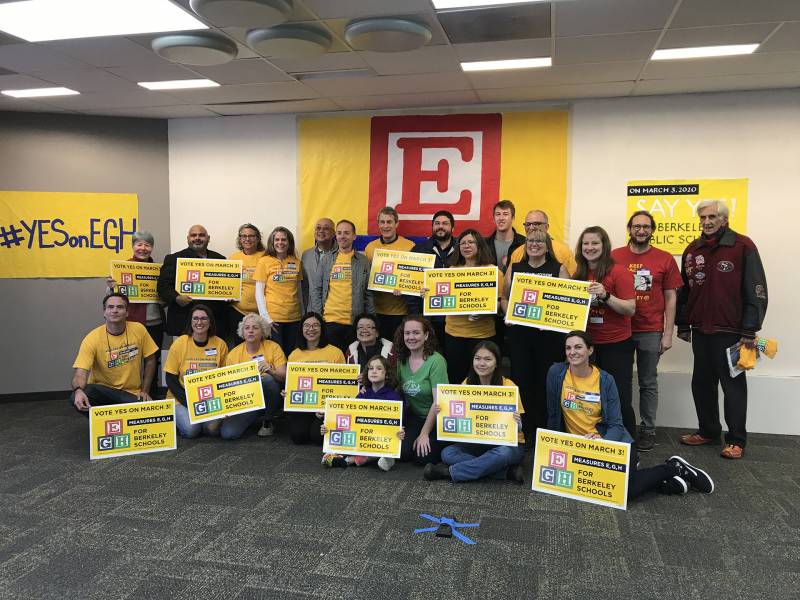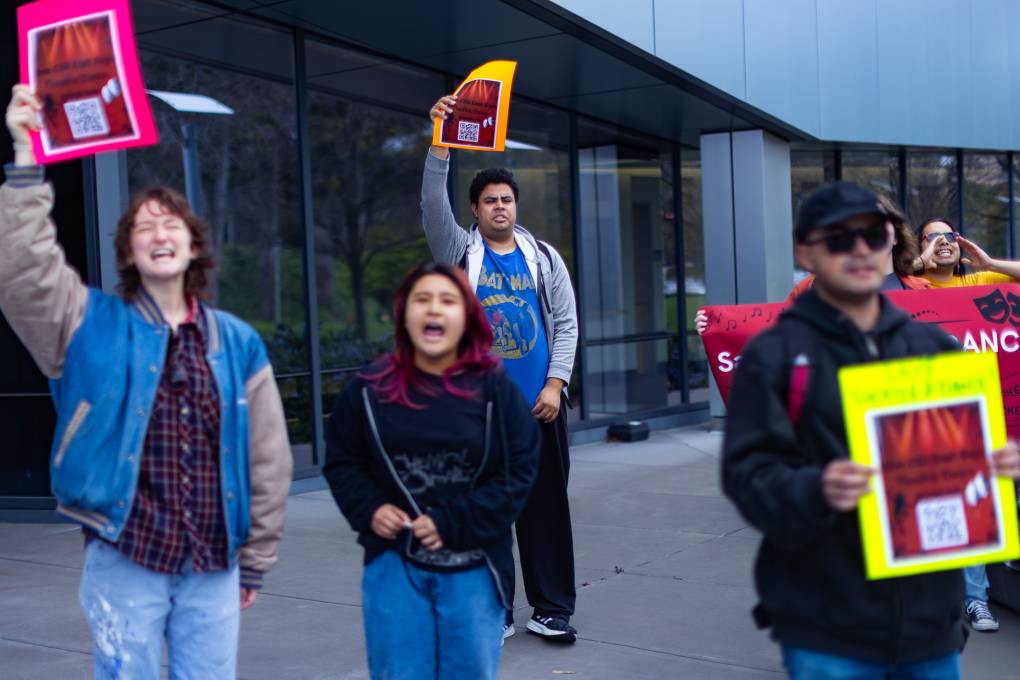When Ana Vasudeo’s son went zip lining for the first time, he asked her to capture the moment on camera for his teacher at Cragmont Elementary School in Berkeley.
“She’s always proud when I try something new,” Vasudeo’s son said.
The moment brought Vasudeo to tears.
Recognizing the close bond between her son and his teachers, Vasudeo joined over two dozen organizers and volunteers at the Committee for Berkeley Public Schools‘ headquarters near downtown Berkeley on Saturday morning. The committee’s campaign aims to increase support for three measures on this year’s March 3 ballot — Measures E, G and H — intended to allocate more money to Berkeley public schools.
Measure E is a new initiative, designed to improve teacher retention in the district by increasing educator salaries by 7%. The funds would come from a parcel tax and would bring in an estimated revenue of $9.5 million each year, according to organizers.
The money would only go to those who have direct contact with students: teachers and classified staff. It excludes administrators, like the superintendent and other cabinet members.
Berkeley Unified School District (BUSD) pay levels for educators are below average among East Bay school districts, according to the committee and this new measure is expected to bring the district closer to the average.
Measures G and H are renewals that have had historical approval, both having been renewed in 2010. Measure G is a general obligation bond which continues funding BUSD school facilities. Measure H uses a parcel tax to continue funding maintenance.
Despite the strong community support over the years, organizers are not taking any chances.
“Polling shows that this is going to do well, but we can’t rest on that,” said Berkeley City Auditor Jenny Wong.
While their campaign isn’t facing any direct opposition — in fact, every elected official in the city is in support of all three measures — they anticipate running into residents who are hesitant to pay more taxes, especially those who do not have children attending public school in the city.
Wong advised the volunteers to counter this opposition by saying that good schools would help raise their property values.

“Sometimes, that’s what speaks to people,” Wong said. “But I also tell them that having high quality education benefits the entire community.”
Organizers and participants at the event echoed concerns over rising housing costs coupled with low educator pay causing high turnovers at public schools.
“Classified staff in our districts make less than everybody else, and they tend to be more people of color and low income people,” said School Board President Judy Appel, referring specifically to those who don’t have teaching credentials, like food service workers and bus drivers.
“This is really all about reconciling the principles of this state, in this community, with realities on the ground,” said Glenn Loveall, political coordinator for Iron Workers Local 378, an Oakland-based labor union representing 2,500 tradespeople.



